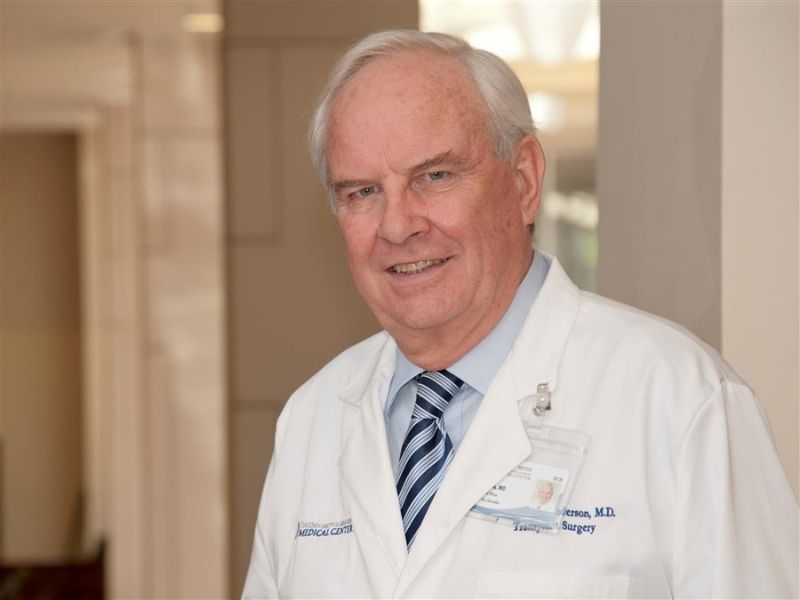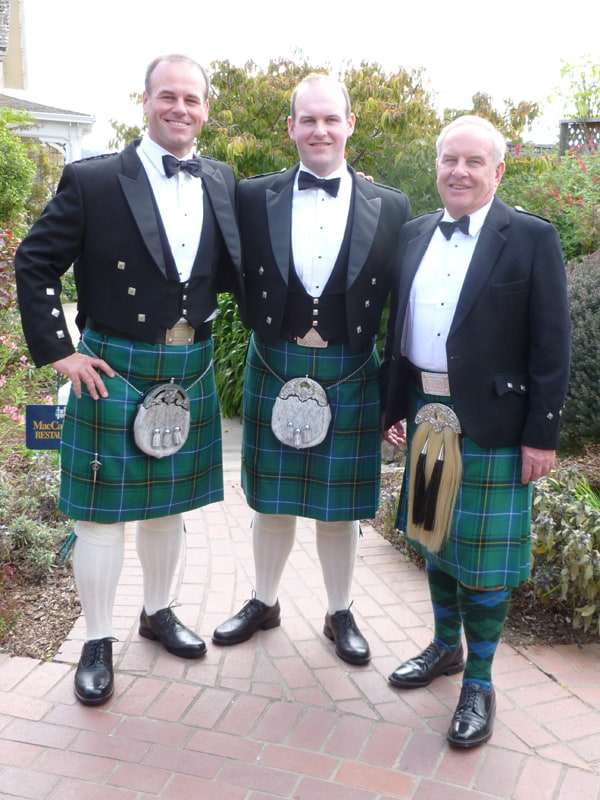New CMO: A leader in patient quality outcomes

The University of Mississippi Medical Center's new chief medical officer wears a Scottish kilt.
But what Dr. Michael Henderson, a native of Edinburgh, is better known for is his international reputation in health-care quality improvement. "It's about everyone coming to work and knowing you are a caregiver - everyone, not just physicians," said Henderson, who joined the UMMC team March 1.
"When someone says, 'I clean the rooms here, and I'm helping to prevent infection,' that's where you want your culture."
Henderson since 2010 has served as chief quality officer of the Cleveland Clinic Health System in Cleveland, Ohio. He's wasted no time since his arrival at UMMC in setting into motion a mindset for quality safety outcomes built on his three personal pillars: leadership, culture and performance improvement.
And to achieve patient outcomes in which they suffer no harm - called hospital-acquired conditions, or HACs - during their hospital stay, Henderson said he will promote teamwork and collaboration among employees.
"I have a big opportunity here to be a leader in quality outcomes, and to help others get better," he said.
Henderson's broad experiences in clinical, academic and administrative medicine give him the tools to take on that job. He earned a Bachelor of Medicine and Bachelor of Surgery degree from the University of St. Andrew's School of Medicine in 1969 and became a Fellow of the Royal College of Surgeons of Edinburgh in 1974. Dr. Henderson also is a fellow of the American College of Surgeons and chairs its advisory committee on national surgical quality improvement.
He holds a higher surgical training certificate in general surgery from the combined Royal Colleges of Surgeons in Great Britain. He has been in the United States since 1978, with a successful surgical career at Emory University's School of Medicine and then the Cleveland Clinic.
Beginning in 2006, Henderson served as chairman of the Quality and Patient Safety Institute in the Cleveland Clinic Foundation. Since 2003, he also was a professor of surgery in the Cleveland Clinic Lerner College of Medicine of Case Western Reserve University.
He served as a global expert for the development of the World Health Organization's Leaders Guide on Patient Safety and Quality of Care in Service Delivery. He is on the advisory board for Robust Performance Improvement for the Joint Commission Center for Transforming Healthcare.
His accolades include Teacher of the Year honors for graduating residents at Emory University and for general surgery residents at the Cleveland Clinic. In 2012, he was named winner of the Pete Conrad Global Patient Safety Award.
"Dr. Henderson has had a distinguished clinical career as a nationally recognized hepatobiliary and transplant surgeon," said Dr. Charles O'Mara, associate vice chancellor for clinical affairs. "In addition, as chair of the Quality and Patient Safety Institute at Cleveland Clinic, as well as their chief quality officer, he has developed an international reputation for improving medical safety and quality of care."
Henderson said he didn't set out to spend the majority of his career in the United States. Growing up in Dundee, Scotland, he said he "never left the 100-mile radius" between that city and Edinburgh. But he was drawn to St. Andrew's, founded in the early 1400s, where his father was dean of the medical school. "Just growing up in that history … That was huge," said Henderson, whose mother also was a physician.
Henderson trained for a decade in Edinburgh, then as a fellow at the Royal College of Surgeons. "Really early on, I decided I wanted to be a surgeon," he said. He was offered three fellowships after that, and chose to go to Emory in Atlanta.
"The chairman of surgery there had developed a new operation for controlling bleeding for patients with cirrhosis," he said. "I'd spent time before with a surgeon who also dealt with that problem. My interest was stimulated."
The next year, he explored job options in Edinburg, but Atlanta called. "I went back to Emory, and the rest is history," Henderson said. During 14 years there, "I got a lot of chances to do clinical studies, and about halfway through, liver transplants were really taking off. I started a liver transplant program in the 1980s."
It was at Emory that Henderson performed his first liver transplant. Several years later, he visited the Cleveland Clinic. "I was hooked from day one," he said. "I went in as chair of general surgery and agreed to put together a transplant center to oversee all clinical transplant programs. It stimulated me to get involved in the transplant field nationally."
The Ohio Transplant Consortium drew accolades from the newly developing United Network for Organ Sharing, or UNOS, and was in the forefront of the nation's first efforts to create a database for organ donation and guidelines for organ allocation to patients.
Under Henderson's leadership as chairman of surgery, the number of surgeons tripled from six to about 18. His duties expanded to include quality safety outcomes, a field he will continue to pursue at UMMC.
He was attracted to UMMC, Henderson said, because he saw great opportunity to improve performance hospital-wide and put his personal pillars to work. The Medical Center's leadership is strong, he said. "I have no question about that. That's why I came here," Henderson said.
O'Mara returns the compliment. "We are indeed fortunate to have Dr. Henderson at UMMC to advance our goal of providing high quality, safe care to all of our patients," he said.
In the words of one of his colleagues at Cleveland Clinic during UMMC's chief medical officer recruitment process, O'Mara said, "If you get Mike Henderson, you will be very lucky!"
Needed improvements include the hospital's culture and the perception that care is resident-driven, Henderson said. "It's getting everyone engaged and valuing their roles," Henderson said. "The fear of doing something wrong is a culture that needs to change. What Dr. (Phyllis) Bishop is doing with error prevention is part of that, and it's even broader.
"There are a lot of quick fixes, but there are ways of making performance improvement stick so you're still not fixing things six months later."

As Henderson transitions from Ohio to Mississippi, he makes time to visit his four children and seven grandchildren, most living in North Carolina. "We've traveled quite a bit once all the kids left home," he said of himself and wife Carole. "You learn a lot by traveling. You build relationships, and you realize that health-care issues are worldwide, and some are very similar."
And, Henderson maintains his heritage, although "my youngest son is the only one who plays the bagpipes." He wears a kilt to important events, such as the wedding of one of his sons about two years ago. "The grandkids all turned up in kilts," he said.
He will spend his first months at UMMC observing "who does what, and finding the pockets of where good things are happening. My job is to choose the right priorities to drive change, and to get the medical staff engaged in helping to make that happen.
"Quality and safety is not fancy. It's about the basics of health care. The question is, does it give you better outcomes? Show me you're not doing harm."


